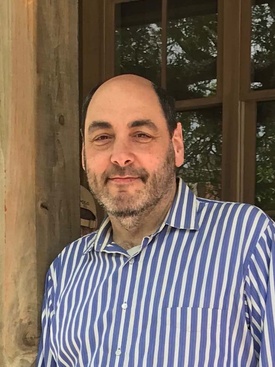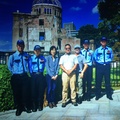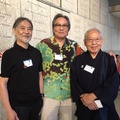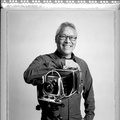“I have told many times the story of how years ago I came across some of Franklin D. Roosevelt's writings from the 1920s, in which he endorsed legal discrimination against Japanese immigrants on the grounds that it helped preserve white ‘racial purity’ against interracial marriage,” scholar and author Greg Robinson recalls.
“It was a great shock to me, and started me thinking about his role in Executive Order 9066.”
For Robinson, a historian by training, the discovery motivated him to devote much of his professional career to researching and writing about Japanese American history. He has written numerous books, including By Order of the President: FDR and the Internment of Japanese Americans (Harvard University Press, 2001), and countless articles as a regular contributor to publications such as the Nichi Bei Times, Nichi Bei Weekly, and Discover Nikkei, as well as other forums.
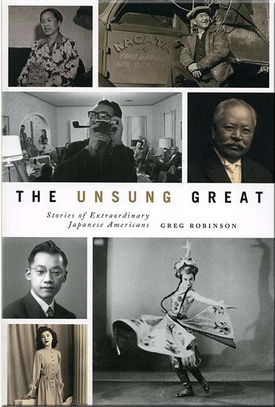
Robinson’s latest book, The Unsung Great: Stories of Extraordinary Japanese Americans (University of Washington Press, 2020), builds on that remarkable body of work. He describes The Unsung Great as “a book of short pieces that tell stories of extraordinary people and things in Japanese American history (not all of them Japanese Americans).” The book draws from years of Robinson’s writings as a journalist and community historian.
Beyond satisfying his interests as a historian over the years, Robinson’s work has had personal meaning for him. “I began to better understand, and to want to elucidate, the vital role that Japanese and other Asian Americans have played in shaping American law, culture, and social life,” he says. “That is still very important for me, of course. However, another strong motivating factor for me to continue doing this kind of research has been the connections I have forged through it with the families of the people I write about.”
Robinson notes that the families he has interviewed have been generous in sharing memories and archives, and have found enjoyment in participating in his research.
“I have been inspired by the messages they have sent me expressing their pleasure and gratification at seeing my stories,” Robinson says. “One woman kindly wrote to me that she and her siblings never expected to learn so much new information about their family, and from someone who was not a relative!”
Amid the surge in anti-Asian hate crimes in the United States in the past year, Robinson considers that his writings offer an important historical perspective. He is quick to point out that “large-scale hostility and racial discrimination towards Asians is nothing new—and it shaped the lives of Japanese Americans in so many ways.”
Robinson says. “As in the past, much of the current wave of anti-Asian hate is based on (or expressed as) xenophobia—others refusing to recognize people of Asian ancestry as Americans, or as rightfully in the United States. It is still amazing to me to reflect that the Issei, most of whom spent their entire adult lives in the United States, were nonetheless legally barred from becoming American citizens until 1952.”
“One thing that my book clearly shows is just how deeply and fundamentally American all these Asian immigrants and their descendants really were (are),” he adds. “I am especially impressed by the Americanism of the first-generation immigrants. Although they maintained ties with Japan and kept up Japanese cultural traditions to varying degrees, they enthusiastically adopted American customs and displayed many stereotypically American attributes, most notably that of being largely ‘self-made’ men or women. And then I also write about families such as the Ohnicks and the Takamines, who have been in the United States for generations, and whose members across multiple generations made important contributions to American society.”
Robinson, American-born and a first-generation Canadian, empathizes with many of the subjects of his stories. “Maybe I am biased in my view, but it does seem to me that immigrants tend to make the best citizens, precisely because the experience of immigration teaches people to be persevering and not to take freedoms for granted.”
In considering how many of the Nikkei profiled in The Unsung Great persevered amid significant obstacles, Robinson says that one recurring quality that he has found among these people is their “amazing adaptability.”
“So many of them ended up making their mark in fields quite distant from where they began,” Robinson says. “T. Scott Miyakawa, for example, started out with a degree in mechanical engineering from Cornell University, but as a Nisei was largely blocked from finding a position in his field with an American firm. He proceeded to work as an economist (and propagandist) for the Southern Manchuria railway, studied statistics and religion at Columbia, and even worked for a time as a physics instructor, before finally getting a permanent job as a professor of sociology at Boston University.”
In another example, Robinson recounts the journey of Henry Mittwer. “After he left camp, he went from being an independent furniture designer to designing precision instruments for rockets to moving to Japan and achieving renown there as a Buddhist monk, author, and expert on ikebana.”
While Robinson’s research to date has covered a wide range of history, he insists that scholarship on Japanese American history is far from over, with many more important facets still largely unexplored. He mentions LGBT history, religion, and the experiences of mixed-race Nikkei as just a few examples.
His next project, almost completed, involves the history of Japanese Americans in New Orleans. “While most people are not used to thinking of the South as a place for Asian Americans—or at least they weren’t before the March 2021 shootings in Atlanta—there is an enormous history of commercial relations between Louisiana and Japan, and the cultural relations that spin off from this partnership.”
“Apart from sharing stories that are fun to read, my larger goal is to transform people's ideas about Japanese Americans, by showing some of the richness and diversity of their history,” Robinson says.
* * * * *
The Unsung Great: Uncovering Nikkei Histories with Greg Robinson
Saturday, June 12, 2021
1:00pm - 2:30pm (PDT)
Join a special Zoom program presented by the Japanese American National Museum featuring Greg Robinson where he will speak to his process uncovering the stories from The Unsung Great and, in honor of LGBTQ+ Pride month, he will highlight his chapter on the often unheard stories of queer Nikkei people throughout time. He will be joined in discussion by other scholars and experts of LGBTQ Nikkei history, Jonathan Van Harmelen, Randall Kikukawa, and Tina Takemoto.
For more detail, please check out JANM's events calendar >>
© 2021 Darryl Mori


